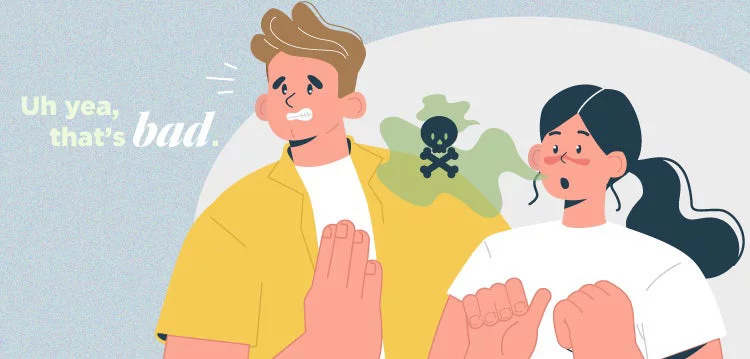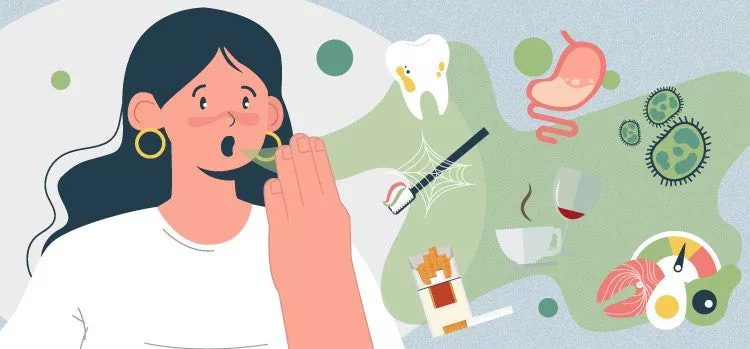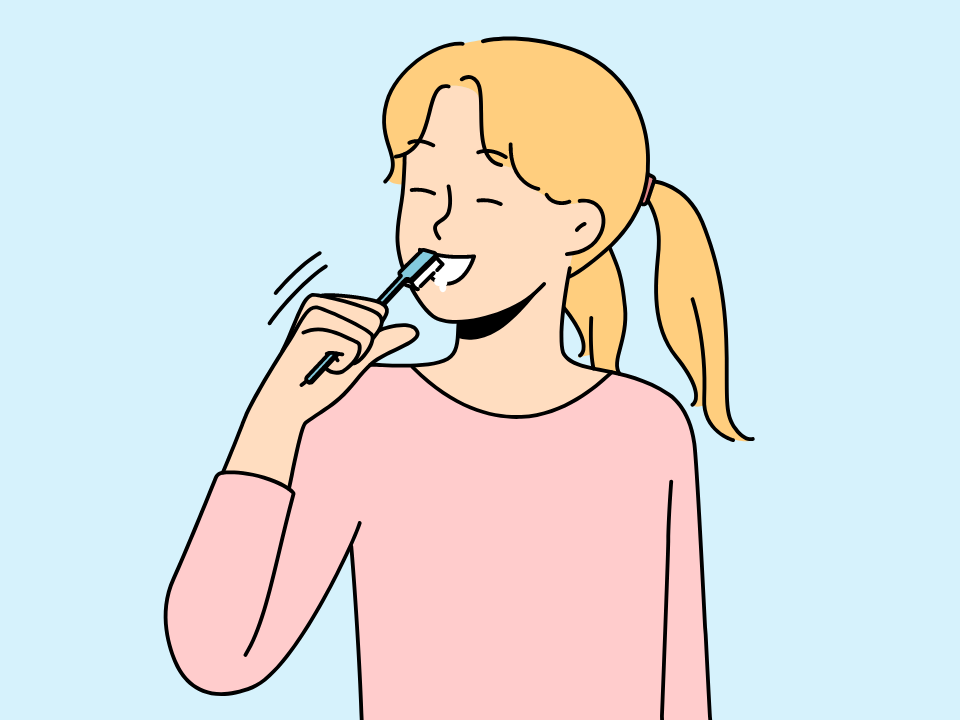Bad breath can be embarrassing for you and unpleasant for others. Medically known as halitosis, many factors cause bad breath. Such as poor dental hygiene, infections, the foods you eat, and unhealthy habits such as smoking and drinking alcohol. Other possible causes include dry mouth and health conditions such as respiratory infections, diabetes, kidney, liver, lung disease, and gastrointestinal issues. The bottom line is that nobody wants to be known for an unpleasant odor. Understanding what is behind bad breath can help you avoid it in the future.

How do I know what is causing my bad breath?
- Mouth, Nose, and Throat Infections: According to the Mayo Clinic, Ear, Nose, and Throat (ENT) issues can lead to postnasal drip, which contributes to foul-smelling breath. In simpler terms, the bacteria in your mouth feed on the mucus your body produces. For example, your breath may be worse when you are battling something like a sinus infection (which not only leaves you sniffly but stinky, too!).
- Dry Mouth: Numerous things may cause you to have a dry mouth. Like, medication, certain medical conditions, alcohol consumption, tobacco use, or drinking an excessive amount of caffeine. For these reasons, make sure you drink plenty of water or chew sugarless gum to increase saliva production.
- Smoking, Nicotine, and Tobacco Products: We all know tobacco products damage your health, but nicotine also harm your mouth by drying it out. Similarly, smokers are more likely to develop gum disease than non-smokers, which adds to bad breath. Please talk to your dentist or doctor about how to quit smoking, vaping, or chewing tobacco.
- Coffee, Caffeinated Drinks, and Alcohol: Excessive consumption is harmful to your health, but these products also make your mouth dry. Remember to drink plenty of water in moderation throughout the day.
- Poor Dental Hygiene: Are you practicing good dental hygiene every day? With this in mind, brush your teeth at least twice a day with anticavity toothpaste. Next, you need to floss each night, and do not forget to brush your tongue. Lastly, you may rinse your mouth with a therapeutic mouthwash.
- Diet: Reducing sugar intake helps since sugar assists bacteria to multiply quickly. Also, it may seem obvious, but pungent foods like onions and garlic are on the long list of smelly-breath-causing foods. If your breath is a significant concern, you should be aware of these foods. Lastly, some people avoid them as much as possible.
- Chronic Health Conditions: Gastric reflux, diabetes, liver, and kidney disease contribute to repugnant breath as well. Yet another reason why taking care of your overall health keeps your mouth healthy. Do you know your Mouth-Body Connection? Take Smile Generation's quiz.
Is there a permanent treatment for chronic bad breath?
Smile Generation wants to let you in on a secret: everyone suffers from bad breath at times. With that said, it is time to see a dentist when chronic offensive breath interferes with your daily life. A dental professional will examine your mouth and diagnose the cause behind the odor. If you do have halitosis, our dentists will recommend a personalized treatment to end your bad breath. Are you ready to take the next step to a healthy mouth? The Smile Generation's directory allows you to find a local dentist by location or office.
Find your trusted, local dentist today!
Smile Generation blog articles are reviewed by a licensed dental professional before publishing. However, we present this information for educational purposes only with the intent to promote readers’ understanding of oral health and oral healthcare treatment options and technology. We do not intend for our blog content to substitute for professional dental care and clinical advice, diagnosis, or treatment planning provided by a licensed dental professional. Smile Generation always recommends seeking the advice of a dentist, physician, or other licensed healthcare professional for a dental or medical condition or treatment.







